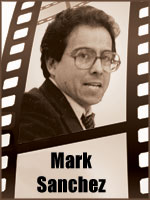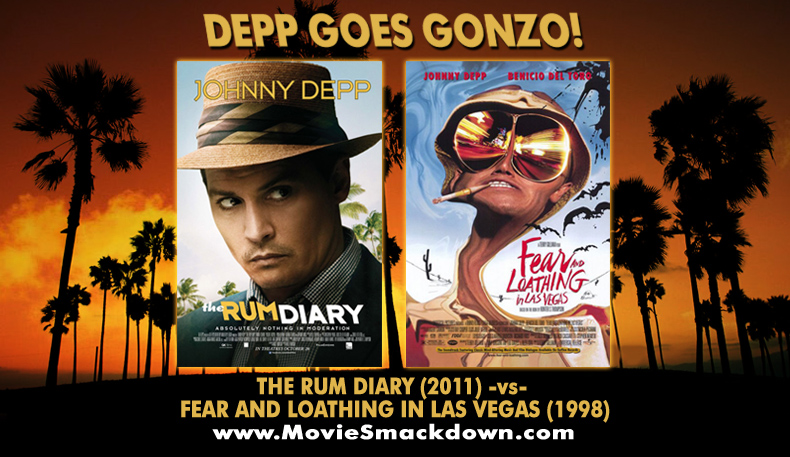 The Smackdown
The Smackdown
Better late than never. Recession or no, it’s still a little surprising “The Soloist” reached the cineplex at all, five months after its original release date. The story is simple and focuses on human grace. Even with A-List talent on board – Robert Downey, Jr. and Jamie Foxx – it’s a risky bet. It contains none of the noise, contrived violence or costumed characters the studios factor into many releases.
“The Soloist” tells a story about extraordinary gifts connected to a very compromised life. If this sounds like something straight from the headlines, it should. LA Times columnist Steve Lopez wrote about a man who changed his life, first encountered in a skid row plaza near a statue of Beethoven.
What follows is complicated like any messy life, and it will have you wondering: Haven’t I seen something like this already?
Yes. You have. Director Scott Hicks brought us “Shine” in 1996, earning Geoffrey Rush a Best Actor Oscar in a well-made, well-regarded film that touched many of the elements now reworked by “The Soloist.”
Both stories tell us about real people who inspire and piss off their friends in roughly equal measure. Both will open the eyes and heart. Does one create a more indelible portrait of dignity among people who are only too human? That’s our Smackdown.
[singlepic id=1138 w=320 h=240 float=right]
The Challenger
Steve Lopez (Downey) is slowly getting up to speed after a bicycle accident landed him in the hospital with a serious dose of road rash. He’s a lot like many print and broadcast journalists I’ve worked with and known: Bright, resourceful and cynically waiting for something special. Those traits get a workout as he strolls outside the office and hears someone playing a violin with two strings. Although clearly disturbed, the player, Nathaniel Ayers,Jr.(Fox) displays an undeniable gift that Lopez turns into a column about a man who’s “Got the World on Two Strings.” The piece caught fire with readers, who send encouragement, even a replacement cello.
Lopez decides to follow up and that launches a larger story that changes two lives and exposes Lopez to grousing that he exploited his subject. At first glance, perhaps the only one he’d get from most people, Nathaniel Ayers isn’t much to look at. He’s middle aged, living on the street for decades and talks to himself. Schizophrenia reduces Ayer’s world to his interior life and Beethoven. Lopez draws him out, taking Nathaniel to a rehearsal by the local symphony, finding him a music teacher and a studio apartment. Nathaniel is not a willing participant: His mood swings make him unpredictable, uncooperative, occasionally violent. Lopez’ behavior is well beyond anything they teach in journalism school. He’s become an advocate for lost souls dumped onto the street. Lopez tweaked the system and Nathaniel manages to reconnect at times to a world he lost after his second year at Julliard. Along this journey we hear a lot of beautiful music.
[singlepic id=99 w=320 h=240 float=right]
The Defending Champion
David Helfgott (Rush) is the son of a Holocaust survivor and living with his family in Australia. As a boy David is cursed with a ear for music and an unrelenting father. Peter Helfgott (Armin Mueller-Stahl) pushes the boy to learn the hardest pieces and is unyielding when David falls short. This is not a happy lad. His teachers (among whom John Gielgudstands out) go tag-team on David until it’s gone too far: He breaks down after a flawless first movement of Rachmaninoff’s Third Piano Concerto. What follows is not pretty: Electroshock therapy, institutionalization and no exit until a visitor recognizes the boy with all that unfulfilled talent. David lives another sort of dead-end existence until he meets Gillian (Lynn Redgrave). Mind you, David has not been healed, there’s no miracle transformation. He does find personal redemption and new expression on the piano. Along the way David sums up, perhaps unknowingly: “You can’t lose ’em all.” That says a lot for any life.
The Scorecard
Both movies offer a rare treat: Real people, realistically drawn and — more or less — a happy ending, at least not a saccharin gob for an audience to choke on. These films pile up the style points differently.
It’s pointless and wrong to quibble over the awards and nominations bestowed on “Shine.” Geoffrey Rush gave a career performance. It beggars the imagination that any film would fall apart with a cast featuring a Redgrave, Gielgud and Armin Mueller-Stahl. They are splendid in this screenplay by Jan Sardi from a story by Scott Hicks. “Shine” is well-staged, always engaging, and never loses focus on a troubled life facing very long odds.
You can say the same about “The Soloist.” There’s a difference in emphasis: This film is every bit about the columnist as the homeless musician. It’s a tribute to Susannah Grant’s screenplay (based on Lopez’ book) that Nathaniel Ayers doesn’t come off like a crazy saint or Lopez like a clueless do-gooder. Downey eclipses everything you liked about him in “Iron Man.” Jamie Foxx shows a real measure of restraint and avoids playing Ayers for cheap pity. Both function — and develop an uncomfortable friendship — in a world where even simple plans fly out of reach. What astounding grace it must take for Nathaniel to curl up on the sidewalk and say “I hope the whole world sleeps well.” That taught Steve Lopez a lot and it shows.
Both nicely translate onto film the power that music has on the imagination. Both show a little real humanity — which beats much of what passes for filmed entertainment. No monsters, no precocious bullshit and attitude.
Is there enough margin here to call a winner? Yeah.
The Decision
Nothing here diminishes the achievement of “Shine.” It shouldn’t fall from anyone’s list of favorites or feel-good movies. And it doesn’t lose here, but it does not win.
“The Soloist” is every bit as well-made, but there’s something more in the portrayal of Steve Lopez that pushes our face to the mirror. I hope no one goes homeless or mentally ill but there’s something here that speaks to anyone who wishes to help someone who is. The film confronts the notion that Lopez may be exploiting Nathaniel for public acclaim. That debate may never end, but I believe there are easier ways to gravy t
rain a little glory — especially if you are untouched by the experience. There are too many off ramps available if the going gets uncomfortable. The movie Steve Lopez doesn’t take one — and I don’t believe the real one would, either. Both men — in the movie and real life — are transformed by the experience and a difficult friendship. Steve Lopez said it best: “Loyalty is something you believe in, knowing it will carry you home.”
It took five months to reach this point and pick a winner, “The Soloist.” Better late than never.



We just saw a beautiful digital projection of THE SOLOIST at our new Muvico. The sound quality was superb.
Robert Downey is so damned consistently good. He’s amazing. Jamie Fox gave a very strong performance.
The film did make you think about how difficult it is to help sometimes and that, even if you try, it doesn’t always work out like “in the movies.” I would give it the win, too.